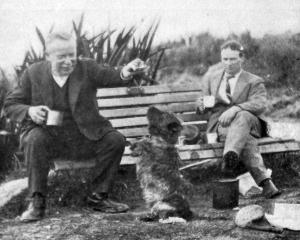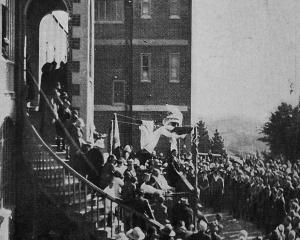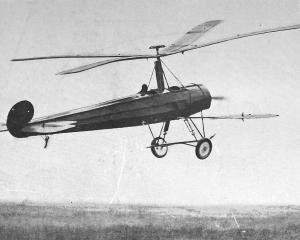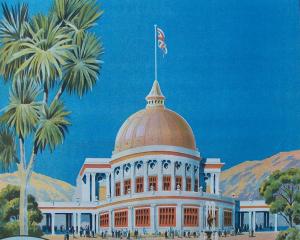Taken as a whole, in perspective, the Gallipoli story is distressing. One gets afraid of the word ‘‘heroes'', such is the reckless use of it; but we need not hesitate to speak of martyrs.
From the ‘‘United Empire'' magazine now on the Athenaeum table I borrow an account by Guy H. Scholefield of the martyrdom of the Otago battalion - the lads who but yesterday, as it seems, were route-marching through the Dunedin streets.
On Sunday, May 2, a week after the landing, they were detailed for special duty - the scaling of a precipitous face down which an engineer party had suspended a rope to help the climbers. At the top, though no one seemed to know what they would find at the top, they were to extend and dig themselves in, forming an advance trench.
The Otago battalion formed up in the evening, 700 strong, and proceeded up Hell Gully towards its goal. When the rope was reached, it seemed as if the long queue of waiting men would never get to the top.
Laden with packs, they clambered up the hillside in single file. About 50 men were clinging to the rope at a time and it swayed to and fro awkwardly. As each platoon reached the crest of the ridge the men opened out and lay flat on the ground with fixed bayonets.
At last all had reached the summit and advanced to the new position. They no sooner moved than the Turks discovered them. The New Zealanders rushed forward to get into cover and simultaneously the Turkish machine guns set thick along the front, opened fire. The stream of lead clipped the tops off the scrub as with a pair of shears.
The New Zealanders could do nothing but lie low to avoid the fire, for to advance in the darkness would have been foolhardy. Gradually the flashes of the Turkish rifles worked round the flank, while bomb-throwers approaching in front were able to throw in devastating hand grenades. At last the order came to retire.
The position was being enfiladed and could not be held. Leaving the dead behind, but carrying their wounded, the gallant Southerners slowly and laboriously evacuated the position. Some distance in the rear lay the reinforcements of the Royal Naval Division, and behind them the trenches of the Australians, hitherto the front line.
Back to the head of Hell Gully the battered remnants of the battalion worked their way, and with the dawn they re-formed on the beach. Out of 700 men only 250 answered the roll-call in the morning.
There were many acts of individual gallantry, especially in saving the lives of the wounded, and the commanding officers, Major Moir and Major Turnbull, greatly distinguished themselves by their reckless bravery.
When eventually the stragglers were all in, the battalion had about half its strength of effectives.- Civis.
■ The good work of the Plunket nurse is fast impressing itself upon the residents of country districts. In some places where her introduction was received almost with derision by those who protested that they had no time for these ‘‘new fangled ideas'' of bringing up children, she has now, by her excellent work, solidly established herself in the favour of everyone.
The matter that concerns those who were once in opposition to the Plunket Society, is that the funds necessary to retain her services may not be forthcoming. Mr Kennedy Black, of Australia, is giving a series of entertainments in the various towns of Central Otago, and under the auspices of the Roxburgh branch, his company will appear in that town next Thursday evening.
A notice of the entertainment appears in our advertising columns.
- ODT, 11.3.1916.
COPIES OF PICTURE AVAILABLE FROM ODT FRONT OFFICE, LOWER STUART ST, OR WWW.OTAGOIMAGES.CO.NZ












